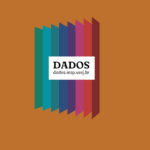Maria Helena Cruz Pistori, Associate Editor of the Bakhtiniana, Post-Doctorate student – Pontificate University of São Paulo (PUC-SP), São Paulo, SP, Brazil.
Paulo Rogério Stella, Foreign Languages Executive Editor of Bakhtiniana, Universidade Federal de Alagoas –UFAL; Post-Doctorate – Pontificate University of São Paulo (PUC-SP), São Paulo, SP, Brazil.
 The difficult pandemic moment we have been facing demands an ethical posture from every citizen, a position defended by Bakhtiniana (16.4), in “Pandemic, Ethics and Discourses”. The search for and the recognition of these varied ethically responsible postures can be seen in this issue, which focusses on analyzing a variety of speeches in circulation in the period, and the social values they promote.
The difficult pandemic moment we have been facing demands an ethical posture from every citizen, a position defended by Bakhtiniana (16.4), in “Pandemic, Ethics and Discourses”. The search for and the recognition of these varied ethically responsible postures can be seen in this issue, which focusses on analyzing a variety of speeches in circulation in the period, and the social values they promote.
In mid-June 2020, in the initial period of the pandemic, our journal decided to propose an issue that would deal with speeches about the Covid-19: the pandemic made it very clear to everyone that words are not transparent, as noted by Maingueneau in the article that closes the issue (2021, pp.140-156). As we have seen, throughout this period, the narratives went on one after the other polemically dialoguing among themselves as shown in the media in general and in the social media specifically; they agreed about facts, numbers, procedures, drugs, vaccines…; but also disagreed about the same facts, numbers, procedures, drugs, vaccines…; they refuted one and/or another narrative, or part of it. The speeches complemented or refuted each other, in their whole or in part… The discursive, the sanitary, and the social realities revealed in the end to be political (and party-political…) encompassing scientists, citizens, skeptics and charlatans.
The text that opens the issue Pandemic, ethics and discourses – Editorial (Brait; Pistori; Lopes-Dugnani; Stella; Rosa, 2021, p.02-07), signed by the journal’s editors, defends a commitment to the Bakhtinian posture of inseparability of life, ethics and knowledge:
Our choices reveal our ability to empathize with each other in every moment of our existence. Our unique and unrepeatable existence does not allow us an alibi in life, in knowledge or in art: we are ethically responsible as regards our responses to the other and to reality. Therefore, in this pandemic moment, it is necessary not only to “think right,” remembering the centenary of Paulo Freire’s birth (1997, p.31), but also to position ourselves in the right direction, believing in the possibilities of changes particularly in Brazil today, in which the health crisis goes hand in hand with other crises; crisis in politics, education and the environment, to say the least.
Figure 1. Illustration by Maria Rita
We know that the dialogues did not stick to immediate life at the time, but reached the great time (cf. Bakhtin, 1986, p.177): they brought about the discussion of the Spanish flu at the beginning of the 20th century, and the memories of the plagues that devastated humanity in past centuries. Scientific journals – in the medical field, mainly – had never reached a so popular importance as before: they were widely cited and, at each moment, the population could be informed that such a study had (or did not have) the consent and proof of peers. The academy, in general, positioned itself and produced numerous papers, conferences, videos, lives, in different areas of knowledge.
In this issue of Bakhtiniana, in the analysis of speeches about Covid-19 under different theoretical perspectives, the ethical commitment, which does not recognize the separation between language and life, was recognized and adopted by each of the researchers who signed the articles. This happens in relation to the analysis of speeches made during the “Poetic Quarantine” promoted by the Brazilian Association of Literature of Cordel; in relation to the speeches about the elderly, and the pedagogical speech of an early year’s teacher. Likewise, but in an especially poignant way in relation to life and care of the patient, Voges (2021, p.75-102) deals with a nursing discourse posted on FB, in “A Shift that Broke my Heart: the Nursing Work from the Dialogic and Ergological Perspectives in Times of Covid-19”. The globality of the pandemic experience is revealed in the remote learning treated in Russia higher education; and the Brazilian polarized political conflict, so present (- and suffered!) throughout the period, is taken up again in the analysis of institutional political advertisements.
The issue, however, does not end there. By reaffirming a “commitment to Bakhtinian ethics, something that each of us recognizes and affirms in a singular and unique way”, Bakhtiniana highlights the importance of the review of a book about “Publications with Dedicatory Inscriptions in the Collection ‘The Personal Library of M. M. Bakhtin’”, written by Svietlana Dubrovskaia and Oleg Osovski (2021, p.157-167), which reveals the recognition of Mikhail Bakhtin in life by his peers.
Finally, on considering the various meanings of the pandemic – the “pansemia”, in the words of Pampa Arán and Ariel Gomes Ponce (2021) – that we invite each reader to read and reflect upon the texts presented in Bakhtiniana 16.4, and, simultaneously, to respond to them responsibly – the responsive and active understanding proposed by Mikhail Bakhtin.
Referências
ARÁN, P. and PONCE, A. G. Ética participativa en BAJTÍN. In: CARRIJO, V.L.S. (ed.) Pandemia y pansemia. Caderno de Resumos 22ª. InPLA: linguagem e interfaces – aproximações e distanciamentos. São Paulo: Pontifícia Universidade Católica de São Paulo, 2021 [viewed 14 December 2021]. Available from: https://www.researchgate.net/publication/355982797_Caderno_de_resumos_22_InPLA_recurso_eletronico_linguagem_e_interfaces_-_aproximacoes_e_distanciamentos
BAKHTIN, M. Para uma filosofia do ato responsável. Tradução aos cuidados de Valdemir Miotello & Carlos Alberto Faraco. São Carlos: Pedro & João Editores, 2010.
BAKHTIN, M. Por uma metodologia das ciências humanas. In: BAKHTIN, M. Notas sobre literatura, cultura e ciências humanas. São Paulo: Editora 34, 2017, p.79.
FREIRE, P. Pedagogia da autonomia. Saberes necessários à prática educativa. São Paulo: Paz e Terra, 1997.
MAINGUENEAU, D. A análise do discurso diante da crise do coronavírus: algumas reflexões. Bakhtiniana: Revista de Estudos do Discurso [online]. 2021, v. 16, no. 04, pp. 140-156 [viewed 23 November 2021]. https://doi.org/10.1590/2176-457349759. Available from: https://www.scielo.br/j/bak/a/pZpJRG9rwvbMhb74J4MWG7k/?lang=pt
VOGES, M.C.N. “Um plantão que partiu meu coração”: o trabalho de Enfermagem sob as perspectivas dialógica e ergológica em tempos de covid-19. Bakhtiniana: Revista de Estudos do Discurso [online]. 2021, v. 16, no. 04, pp. 72-96 [viewed 14 December 2021]. https://doi.org/10.1590/2176-457351666. Available from: https://www.scielo.br/j/bak/a/MDQdv79PTHKgLb8bMQsqrDq/?lang=pt
DUBROVSKAYA, S. and OSOVSKY, O. RESENHAS. Bakhtiniana: Revista de Estudos do Discurso [online]. 2021, v. 16, no. 04 , pp. 157-167 [viewed 23 November 2021]. https://doi.org/10.1590/2176-457351261. Available from: https://www.scielo.br/j/bak/a/ybwb4cHV4WyXvVF7nXNMFgy/?lang=pt
External Links
Bakhtiniana. Revista de Estudos do Discurso. Vol. 16.4, 2021. – https://www.scielo.br/j/bak/i/2021.v16n4/
To read the article, access
BRAIT, B., et al. Pandemia, ética e discursos. Bakhtiniana: Revista de Estudos do Discurso [online]. 2021, v. 16, no. 04 , pp. 2-7 [viewed 14 December 2021]. https://doi.org/10.1590/2176-457355817. Available from: https://www.scielo.br/j/bak/a/jn4vHX4KYJjGZkmcF3pPFCk/?lang=en
Como citar este post [ISO 690/2010]:



















Recent Comments